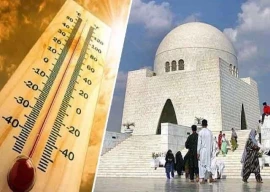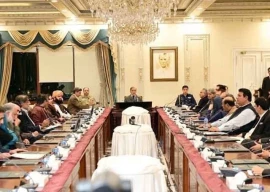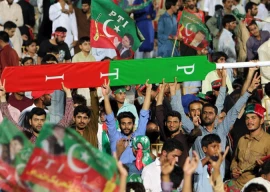
Recounting the travelling adventures of his ancestors (ahlebait) who finally settled at Khujwa, a village in Bihar, India, Dr Naqvi’s main aim is to record the family history he has gathered from oral stories and the study of Sufi literature. He writes mainly for people who are interested in enlightened Muslim families of the subcontinent and for his children and grandchildren, to connect them to their past.
The author traces his roots back to the late 13th century with the arrival of Syed Jalaluddin Surkhposh (also known as Red Sufi of Bukhara) who travelled to al-Hind in 653 Hijri, at the age of 37 and whose family flourished in the subcontinent. He then delves deeper, exploring the presence of African blood in his family through marriage.
Naqvi relates how his ancestor Ghulam Mohammed, tenth in the line from Surkhposh, got to build Khujwa: “When the daughter of Mughal Emperor Aurangzeb fell seriously ill and the court hakims gave up, the ruler said that if Syed ladies of impeccable birth and virtue prayed for her he would reward them suitably. As a result, Bibi Wadi and her 14 sisters offered to pray for the princess and she was healed.” Out of gratitude, the emperor gave them 500 acres of land on which Khujwa village was built in the early 18th century.
Later in the book, Naqvi explores the idea of mianlog or ashraf, and gives insight on how the term ‘Syeds’ acquired significance by the time the family came to settle in India.
Particularly heartwarming is the essay titled ‘My Dada’, an account of the author’s connection with his grandfather which is succeeded by an essay about the author’s own childhood in Hajipur. The book concludes with an interesting essay named after the author’s current postal address, detailing his own settlement in Karachi and his life as an art historian and critic.
The essays, good enough to read as standalone pieces, make the organic whole of a life story. On the whole, the book arouses considerable historical interest.
Published in The Express Tribune, Sunday Magazine, November 13th, 2011.
COMMENTS (4)
Comments are moderated and generally will be posted if they are on-topic and not abusive.
For more information, please see our Comments FAQ

























-(1)1714378140-0/AliAminMaryam-(4)-(1)1714378140-0-270x192.webp)








I would love to read this book if I could get my hands on this...
I would love to read this book. We belong to Naqvi Syed family, direct descendents of Hazrat Surkhposh. I dont know about India, but here in Pakistan or atleast in our Jhang-Khanewal area, people from The Gadee Nasheen Sahib of Uch comes to us annually to take donations for Darbar and record any new births to keep up with the Shajra-E-Nasab. It will be a good read.
Excellent review Aqsa; formal & brief. Write more.